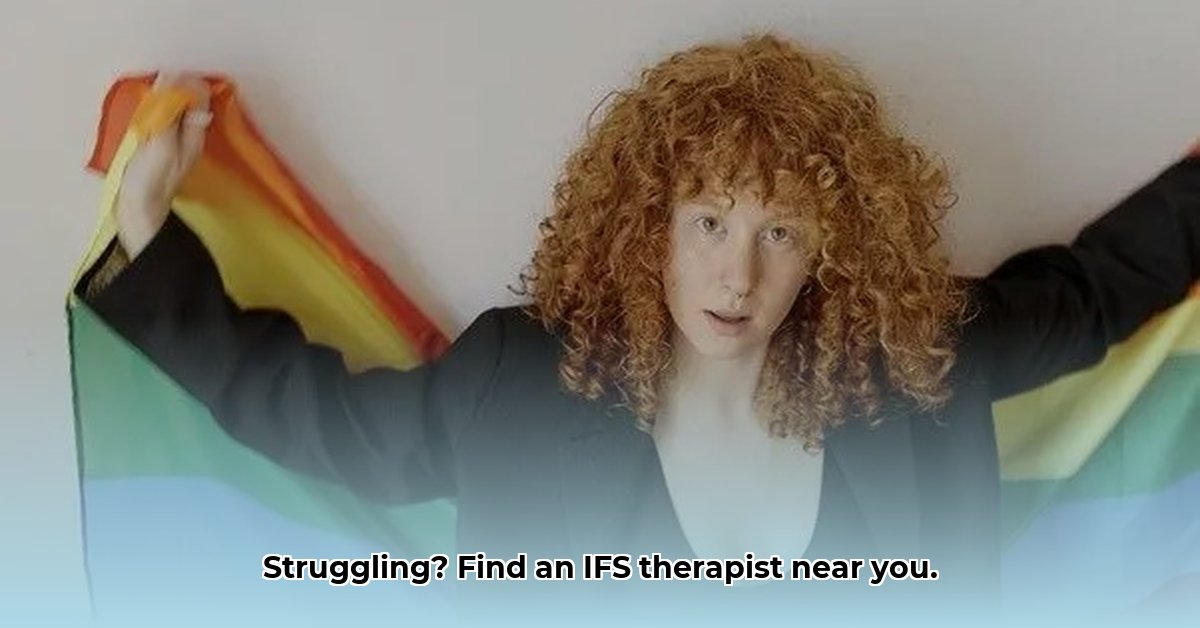Understanding Internal Family Systems (IFS)
Internal Family Systems (IFS) therapy views your inner world as a complex, interconnected system of “parts,” each with its own unique perspective, feelings, and intentions. These parts, even those that seem critical or disruptive, are believed to have positive intentions, often stemming from protective strategies developed earlier in life. IFS also recognizes the “Self,” your core of wisdom and compassion, which can guide you toward healing and integration. This approach can be particularly helpful for addressing anxiety, depression, trauma, and relationship issues. It likely helps to foster self-compassion and a greater sense of inner harmony. Further studies could reveal a wider range of potential benefits.
Finding an IFS Therapist: A Step-by-Step Guide
Locating Therapists in Your Area
-
Start with Online Directories: Begin your search using reputable online therapist directories like Psychology Today. Filter your search by “Internal Family Systems,” your location, and insurance provider, if applicable.
-
Explore the IFS Institute’s Directory: The IFS Institute website maintains a directory of certified IFS practitioners, providing a reliable source for finding qualified therapists.
-
Consider Mental Health Organizations: Many mental health organizations offer referral networks or resources that can connect you with therapists in your area. The National Alliance on Mental Illness (NAMI) is a good starting point.
-
Seek Recommendations: Personal recommendations from friends, family, or other healthcare providers can be invaluable. Don’t hesitate to ask your network for suggestions.
Refining Your Search
-
Identify Your Needs: Before diving into therapist profiles, consider your specific needs and challenges. Are you looking for someone specializing in trauma, anxiety, relationship issues, or a particular life stage?
-
Check Specialties and Insurance: Scrutinize therapist profiles for their listed specialties and whether they accept your insurance. This will help you narrow down your choices.
-
Investigate Therapist Profiles: Spend time reading therapists’ bios. Look for clues about their therapeutic approach, philosophy, and experience level within IFS (Level 1, Level 2, Level 3, Certified IFS Therapist).
-
Schedule Consultations: Reach out to several therapists for a brief consultation. This is your chance to ask questions, assess comfort levels, and discuss practical logistics like fees, appointment times, and in-person vs. telehealth options.
What to Expect During Your First IFS Session
Your first session will probably be a collaborative information-gathering process. Your therapist will likely ask about your personal history, current challenges, and goals for therapy. They may also introduce you to the core concepts of IFS. Preparing a list of questions beforehand can be helpful.
Key Topics of Discussion
-
Personal History: Be prepared to share significant life events and relationship experiences, as these can offer context to your challenges.
-
Current Challenges: Discuss the specific issues or concerns that brought you to therapy, such as anxiety, relationship problems, or trauma.
-
Therapy Goals: Defining your goals for therapy helps you and your therapist chart a course toward achieving desired change.
-
Introduction to IFS Concepts: Expect a more detailed explanation of the IFS model, including the concepts of “parts,” the “Self,” and how they interact.
-
Initial Exploration of “Parts”: You may begin to identify some of the more prominent “parts” that influence your internal experiences.
-
Logistics and Next Steps: Discuss practicalities such as scheduling, fees, and other administrative details.
Additional Resources and Information
-
The IFS Institute: https://ifs-institute.com/ – Offers training programs, resources, and a directory of certified IFS practitioners.
-
Finding Affordable Therapy: If cost is a barrier, explore resources like sliding scale options, community mental health centers, and online directories that list affordable mental health care. Your insurance provider can also provide information about coverage and in-network therapists. Open Path Collective (https://openpathcollective.org/) is one such resource for finding affordable therapy.
Understanding IFS Training Levels
IFS therapists undergo different levels of training, each building upon the previous one. Understanding these levels might help you in your search:
| Level | Description |
|---|---|
| Level 1 | Introductory training, providing foundational knowledge of the IFS model. |
| Level 2 | Builds on Level 1, delving deeper into working with parts and the Self. |
| Level 3 | Advanced training often involves specializing in specific IFS applications. |
| Certified IFS Therapist | Indicates therapists who have met rigorous standards set by the IFS Institute. |
| Program Assistant (PA) | Assists in training programs, supporting those new to the model. |
| Lead Trainer | Qualified to teach Level 1 IFS training, often experienced therapists and trainers. |
| Approved IFS Clinical Consultant | Highly certified consultants who support other IFS therapists in enhancing their clinical work. |
Important Disclaimer: This article provides general information about IFS therapy and is not a substitute for professional medical advice. It is essential to consult with a qualified healthcare professional for any health concerns or before making any decisions related to your health or treatment.
- Divided Food Containers Are Meal Preps Secret Weapon - February 7, 2026
- Food Kits for Adults Offer Fun DIY Cooking Adventures - February 6, 2026
- Food Making Kits Bring Easy, Fun Homemade Dishes to Your Kitchen - February 5, 2026










